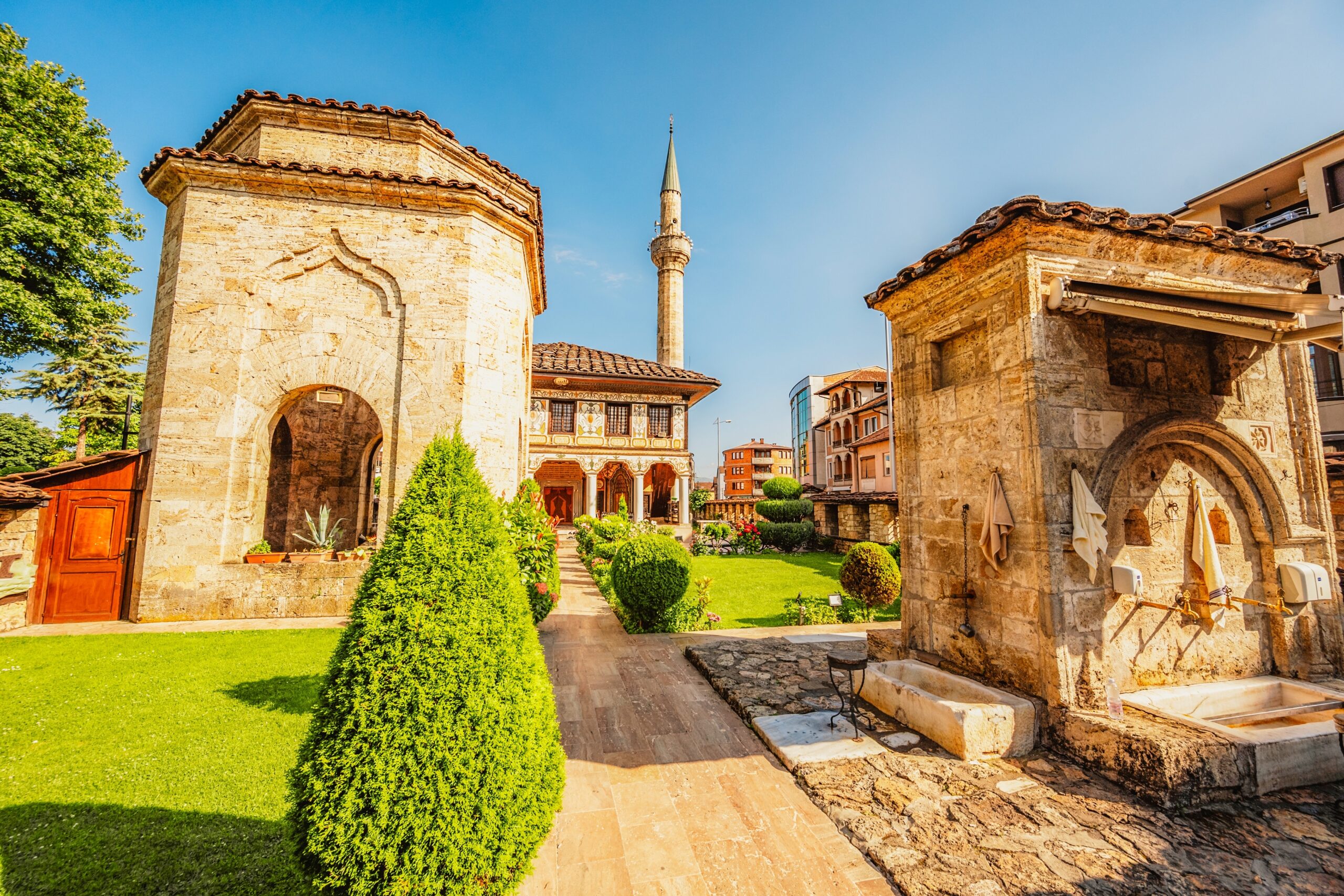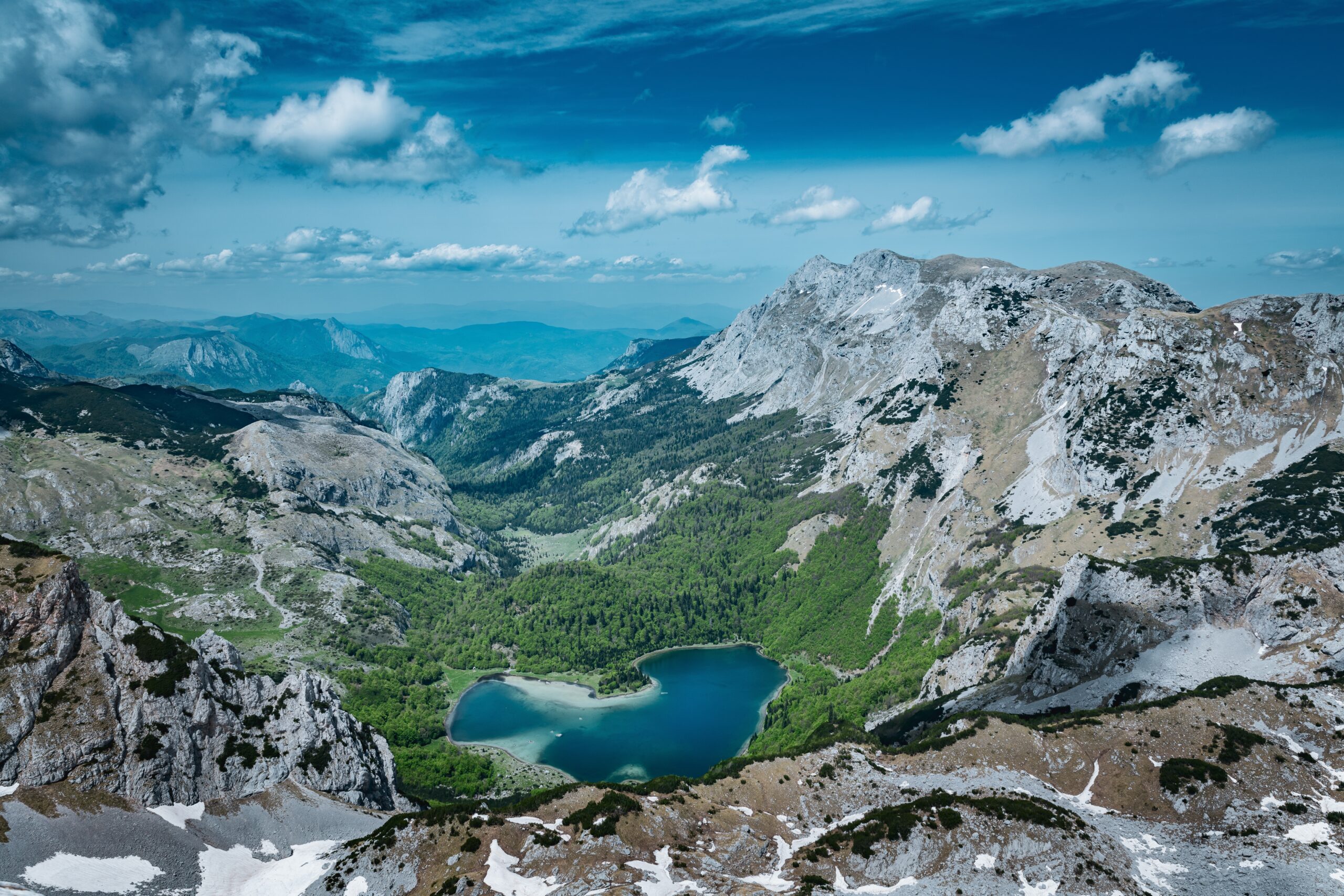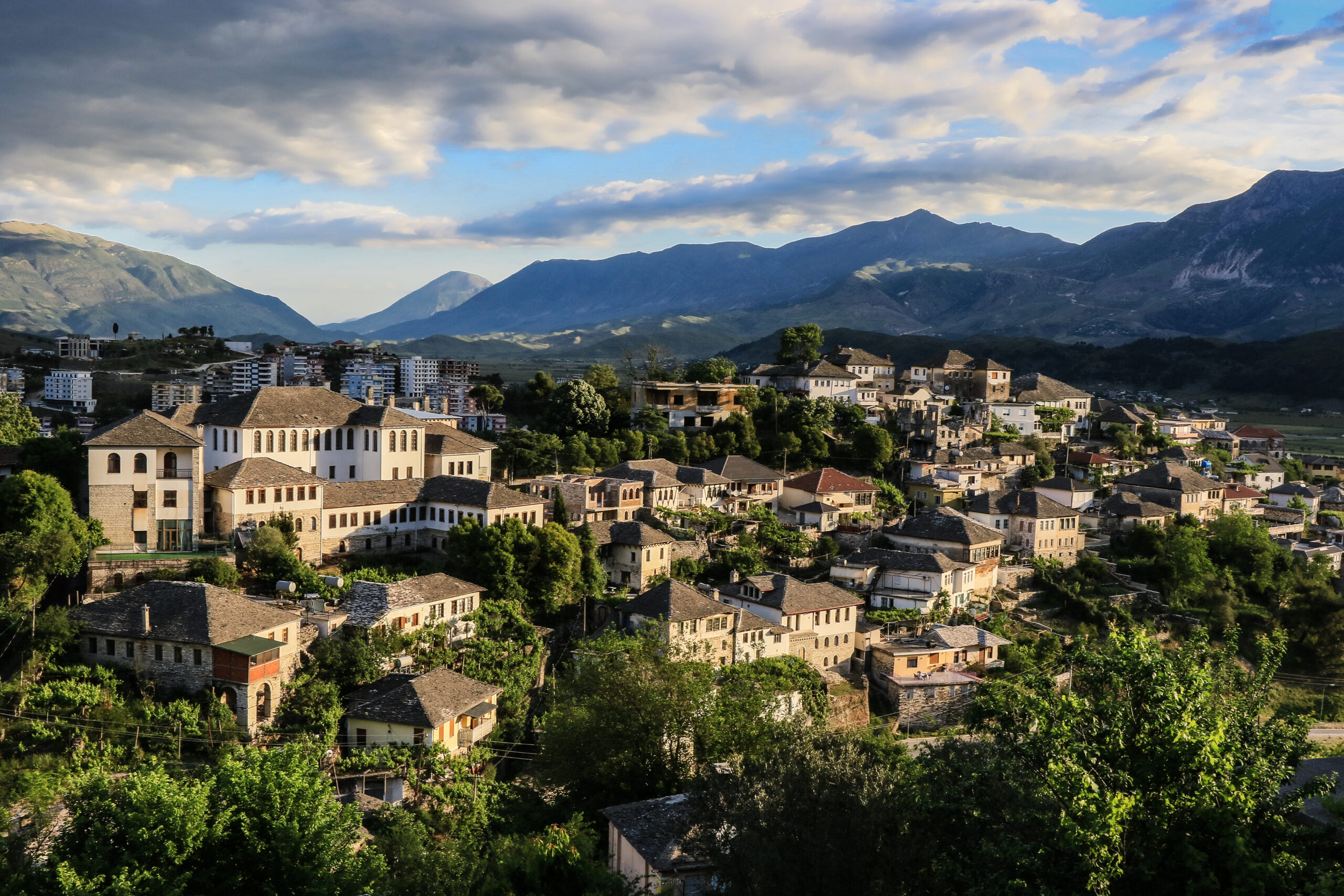Strategic Analysis Balkan Brief
Second half of April 2025
Petra Bošková, Simona Škríbová, Kristína Piknová, Lucia Jašková

Photo: Shutterstock.com
Albania
Albania Opens EU Internal Market Negotiations, Aiming to Conclude All Chapters by 2027
On April 14, during its fourth intergovernmental conference with the European Union, Albania officially opened Cluster 2: Internal Market. This follows the opening of Clusters 1 and 6 last year, bringing the total number of chapters now under negotiation to nine.
Cluster 2 addresses EU rules related to the internal market, including the free movement of goods, services, people, and capital, as well as areas such as company law, intellectual property, competition policy, financial services, and consumer and health protection.
The Council of the EU made up of the governments of the 27 EU Member States, approved Albania’s move to open these chapters and established criteria for their eventual closure.
Albanian Prime Minister Edi Rama stated that the country aims to open and conclude all negotiation chapters by 2027. “It’s an extremely ambitious goal, but today we’re here to reaffirm our strong determination, unwavering commitment, and full enthusiasm to achieve it,” said Rama during a press conference.
Speaking on behalf of the Polish Presidency, Foreign Minister Radoslaw Sikorski emphasised that, amid today’s complex geopolitical challenges, EU enlargement remains a top priority. “The Polish Presidency advocates for a merit-based enlargement process. We aim to advance the enlargement agenda, both toward the East and in the Western Balkans,” Sikorski stated.
At the press conference, European Commissioner for Enlargement Marta Kos described Albania as a true success story in the EU enlargement process and expressed hope that this would be the first of several milestones celebrated this year.
“I urge everyone to value and celebrate each small achievement more than ever. We aim to open all negotiation clusters and begin closing chapters within the next year,” she stated. Kos emphasised that the opening of Cluster 2 had significant international weight.
She also stressed that if Albania is to achieve EU membership by 2030, continued political dedication is essential, particularly in key areas such as justice reform, judicial independence, property rights, minority protections, and freedom of expression.
Sources:
- EWB. (2025). Albania opens Cluster 2 on internal market in negotiations with the EU. In: European Western Balkans. Online: https://europeanwesternbalkans.com/2025/04/15/albania-opens-cluster-2-on-internal-market-in-negotiations-with-the-eu
- Insight EU Monitoring. (2025). Accession Conference with Albania: EU opens negotiations on internal market cluster. Online: https://ieu-monitoring.com/editorial/accession-conference-with-albania-eu-opens-negotiations-on-internal-market-cluster/608874?utm_source=ieu-portal
- The New Union Post. (2025). Albania opens 16 of 33 EU accession chapters in just six months. Online: https://newunionpost.eu/2025/04/14/albania-accession-negotiations-eu/
Bosnia and Herzegovina
Bosnia’s Crisis Deepens as International Envoy Halts Funding to Dodik’s Party
Bosnia and Herzegovina’s international envoy, High Representative Christian Schmidt, took a bold step on Thursday by suspending public funding to the party of Republika Srpska leader Milorad Dodik, citing continued efforts to undermine the country’s constitutional framework.
The measure applies to Dodik’s Alliance of Independent Social Democrats (SNSD) as well as their coalition partner, United Srpska. According to Schmidt, these parties are directly involved in actions that challenge the integrity of Bosnia’s constitutional order and violate the Dayton Peace Agreement.
“The leadership of these parties has repeatedly attempted to erode the foundations of Bosnia’s legal and political institutions,” Schmidt said in Sarajevo. “This decision sends a clear message: political sabotage has consequences.”
The funds will be redirected to a special account at the Central Bank of Bosnia and Herzegovina. Schmidt noted that the decision is effective immediately and warned that non-compliance could lead to criminal liability.
This intervention follows a tense confrontation on Wednesday when officers from Bosnia’s State Investigation and Protection Agency (SIPA) were blocked by Republika Srpska police while attempting to serve an arrest warrant to Dodik.
Reacting within minutes, Dodik convened a press conference in East Sarajevo, dismissing the move as illegitimate and threatening retaliation. “If Schmidt sets foot in Republika Srpska, we will arrest him,” Dodik declared, mocking the envoy’s authority and questioning the fairness of the funding cut. “Is this democracy? That others receive money and we don’t? I couldn’t care less.”
Public funding plays a key role in financing political parties and election campaigns in Bosnia and Herzegovina. Cutting off access to these funds marks an unprecedented step during a growing political standoff.
In addition to Dodik, arrest warrants have been issued for Republika Srpska Prime Minister Radovan Višković and the Speaker of the RS Assembly, Nenad Stevandić. All are accused of attempting to dismantle BIH’s constitutional system.
The latest wave of escalation was triggered by a first-instance court verdict sentencing Dodik to one year in prison and banning him from holding public office in Republika Srpska for six years due to his refusal to implement decisions issued by the High Representative.
In response, the RS Assembly passed legislation barring state-level institutions—including the state judiciary, SIPA, and the High Judicial and Prosecutorial Council—from operating in the entity. The Constitutional Court of Bosnia and Herzegovina suspended these laws pending a final decision.
Sources:
- Azem Kurtic, BalkanInsight, “Bosnia’s International Envoy Cuts Off Public Funding to Dodik’s Party”, https://balkaninsight.com/2025/04/24/bosnias-international-envoy-cuts-off-public-funding-to-dodiks-party/

Photo: Shutterstock.com
Montenegro
Montenegro’s President Pushes Back on UAE Beach Development Plan
On April 29, Montenegro’s President Jakov Milatović sent a strong signal of resistance to a high-profile investment deal with the United Arab Emirates, refusing to sign a law that would clear the way for the development of one of the country’s last untouched coastal areas.
The legislation in question would open the door for construction on the 12-kilometre Velika Plaža beach near Ulcinj, a pristine stretch of coastline in southern Montenegro. Milatović returned the proposed law to Parliament on Tuesday, raising concerns about the lack of transparency and the imbalance in obligations between Montenegro and its foreign partner.
“This agreement places Montenegro in an unequal position,” the president said, pointing to what he described as vague terms that bind Montenegro to a series of commitments without ensuring reciprocal obligations from the UAE.
His office further noted that the deal failed to guarantee fair competition and bypassed national laws on public tenders, procurement, and management of state assets. “The agreement’s preparation and signing lacked transparency, and key legal principles were sidelined,” the presidential statement said.
Milatović warned that the terms of the deal could undermine Montenegro’s efforts to align with EU norms, especially in areas concerning market rules and state aid regulations.
Despite objections from environmental groups, opposition parties, and civil society organisations, the Montenegrin parliament passed two related laws on April 27 to formalise cooperation with the UAE. Milatović approved one, focused on broader economic cooperation, but refused to sign the second, which specifically facilitates the tourism project on Velika Plaža.
His refusal adds another chapter to the ongoing tensions between Milatović and Prime Minister Milojko Spajić. Though once political allies in the Krivokapić government in 2020 and later partners in a local coalition in Podgorica, their relationship has grown increasingly strained.
Velika Plaža’s planned transformation into a major investment zone has reignited those divisions, with Milatović calling the deal potentially unconstitutional and detrimental to national interests.
According to Montenegro’s constitution, the president can return laws to Parliament for further review. If lawmakers reapprove the bill, it returns to the president, who is then obliged to sign it.
Sources:
- Predrag Milic, BalkanInsight, “Montenegro President Defies Govt over Emirati Development Deal”, https://balkaninsight.com/2025/04/29/montenegro-president-defies-govt-over-emirati-development-deal/
Kosovo
Kosovo Faces a Political Stalemate as Parliament Fails to Elect Speaker
Kosovo remains in a political deadlock nearly three months after the inconclusive parliamentary elections on February 9, 2025. The main reason is the MP’s inability to constitute a government and failure to elect a speaker of the Parliament.
The ruling party, Vetëvendosje, led by Albin Kurti (who resigned from his position as Prime Minister on April 15, 2025), has continuously nominated Justice Minister Albulena Haxhiu for the speaker position. Despite multiple voting rounds, Haxhiu repeatedly failed to secure the necessary number of votes. On April 29, during the eighth attempt to constitute the National Assembly and simultaneously the sixth attempt to elect Haxhiu to head the legislative institution, he received only 54 votes, seven short of the required majority (61).
Opposition parties, namely the Democratic Party of Kosovo (PDK), Democratic League of Kosovo (LDK), and Alliance for the Future of Kosovo (AAK), refuse to back Haxhiu and accuse Vetëvendosje of intentionally prolonging the political deadlock by not offering any alternative candidates. LDK has also stated that they will not support any proposal from Kurti’s party, criticising its Government’s rule of Kosovo, which they dubbed damaging to the country’s relations with its allies.
Under Kosovo’s constitution, the failure to elect a speaker prevents the formation of a new government. Moreover, the Parliament must meet every 48 hours until the MPs successfully elect the head of the institution. After the election, President Osmani will give Vetëvendosje the mandate to form a coalition. If it fails to do so, the mandate will go to DPK, which came second in the elections, and after that, LDK, which secured third place. Finally, the failure to elect a speaker and form a government could lead to a snap election later this year, which is a very likely outcome in light of a difficult political situation in the country.
This prolonged political instability and government paralysis also further complicate relations between Kosovo and the EU, particularly in the context of the recent tensions related to developments in Kosovo’s Serb-majority north.
Sources:
- Isufi, Perparim. 2025. “Kosovo’s Parliamentary Deadlock Raises Prospect of New Elections.” Balkan Insight. April 25, 2025. https://balkaninsight.com/2025/04/25/kosovos-parliamentary-deadlock-raises-prospect-of-new-elections/.
- “LDK: The inaction of the Kurti Government has damaged Kosovo’s relations with its allies.” 25 April, 2025. Kosovapress. https://kosovapress.com/en/LDK-The-failure-of-the-Kurti-government-has-damaged-Kosovo%27s-relations-with-allies.
- Bytyci, Fatos. 2025. “Kosovo in political stalemate as parliament fails to elect speaker.” Reuters. April 25, 2025. https://www.reuters.com/world/europe/kosovo-political-stalemate-parliament-fails-elect-speaker-2025-04-25/.
- Si, Nen. 28 April, 2025. “Kos: Normalization With Serbia Is a Prerequisite for Kosovo’s EU Membership Process.” Euronews Albania. https://euronews.al/en/kos-normalization-with-serbia-is-a-prerequisite-for-kosovos-eu-membership-process/.

Photo: Shutterstock.com
Serbia
New administration in Belgrade: Serbia’s new government and the visit of Marta Kos
On April 16, the new Government of the Republic of Serbia was elected at a session of the National Assembly. The swearing-in of the new Prime Minister and new ministers was also attended by the President, Aleksandar Vučić. Of the 199 Members of Parliament present, 153 voted in favour of the new Government in an open ballot, 46 voted against the proposal, and 51 were absent.
The new Prime Minister is the politically inexperienced professor of medicine and endocrinologist Djuro Macut. His cabinet consists of 31 ministers, 22 of whom served in the Government of former Prime Minister Milos Vucevic. Macut’s cabinet is seen as a continuity government in which Vucic will remain highly influential, even though his position is primarily ceremonial.
The new Macut Government aims to end the protests that have persisted since November 2024, when the Novi Sad train station collapsed, and to open a dialogue with protesters who denounce the widespread corruption that should have led to the tragedy. The protests are being led by students who are demanding accountability for the deaths of 16 people. In addition, the students, who have blockaded dozens of faculties across Serbia since November, are also protesting against the breakdown of the rule of law. 80 Serbian students attended a meeting with representatives of the European Parliament and the Council of Europe in mid-April, arriving by bicycle from Novi Sad. The purpose of this journey was „for the world to hear the voice of Serbia“, which they also declared in a statement on the website. The statement says: “(Our goal is) for European institutions to put pressure on the authorities and defend the rights of those who are forced to stay silent”. The students also delivered letters addressed to French President Emmanuel Macron and the Council of Europe to describe the situation in Serbia from November 1, 2024.
Macut also stated that Belgrade would continue to maintain a balance between its ambition to join the EU and relations with China as a major investor, Russia as a traditional ally and the United States.
On EU membership, the visit of EU Enlargement Commissioner Marta Kos at the end of April was to express the EU’s support for Serbia’s EU path. During her visit, Kos called on the new Serbian Government to continue reforming the judiciary to fight corruption, ensure media freedom and guarantee free and fair elections, which are key reforms for Serbia’s accession to the European Union. Kos expressed that, „Without these changes, Serbia cannot move forward on the European path, and I know that what we are demanding is very close to the demands of the citizens who are and have been on the streets. “
Serbia applied for membership in the European Union in 2009. Three years later, it was granted candidate status. Since 2014, when accession negotiations started, more than 20 out of a total of 35 accession chapters have been opened, but the pace of integration has slowed down in recent years.
Sources:
- Enlargement and Eastern Neighbourhood. Commissioner Kos in Serbia for discussions on reforms and EU accession https://enlargement.ec.europa.eu/news/commissioner-kos-serbia-discussions-reforms-and-eu-accession-2025-04-29_en
- Reuters. Serbia’s parliament appoints Djuro Macut as prime minister https://www.reuters.com/world/europe/serbias-parliament-appoints-djuro-macut-prime-minister-2025-04-16/
- Radio Free Europe Liberty. Serbia Approves New Government Led By Duro Macut, A Doctor https://www.rferl.org/a/serbia-appoints-new-government/33387581.html
- European Western Balkans. After cycling to Strasbourg, Serbian students meet with EP and CoE representatives https://europeanwesternbalkans.com/2025/04/16/after-cycling-to-strasbourg-serbian-students-meet-with-ep-and-coe-representatives/
- Aktuality.sk. Eurokomisárka: Srbsko musí reformovať justíciu a garantovať slobodu médií https://www.aktuality.sk/clanok/34xtwf4/eurokomisarka-srbsko-musi-reformovat-justiciu-a-garantovat-slobodu-medii/
North Macedonia
Top Anti-Corruption Official in North Macedonia Investigated for Leaking Case Details
In a surprising twist, the head of North Macedonia’s State Commission for the Prevention of Corruption, Tatjana Dimitrovska, is under investigation for allegedly leaking confidential information related to a major corruption scandal.
Authorities have imposed a travel ban on Dimitrovska and seized her passport while also suspending her from duties at the commission, which she has led since February 2024. She is suspected of breaching confidentiality by disclosing sensitive information tied to the high-profile “Additive” corruption case.
Between May and December 2024, Dimitrovska allegedly used her official phone and communication apps, such as Viber and WhatsApp, to share internal case updates with a defendant in the ongoing investigation. According to a statement from the Organised Crime Prosecution, the information included details about the opening of new cases, decisions made against both individuals and companies and background checks on property and family members.
While prosecutors have not revealed the identity of the person who allegedly received the leaked information, the incident marks a serious blow to the credibility of North Macedonia’s anti-corruption institutions.
The “Additive” case involves 31 individuals and five legal entities accused of manipulating procurement processes for additives used by state-owned power plants. Prosecutors allege that, from April 2023 to August 2024, this network of suspects caused financial damage exceeding 6 million EUR to the state budget.
Among the indicted are high-ranking figures from the national energy sector, including the former and current directors of the state electricity company ESM and senior officials from the REK Bitola and TEC Negotino power plants.
Although the Anti-Corruption Commission plays a critical role in investigating allegations of graft, it does not have prosecutorial powers. Its members, including the chairperson, are appointed by Parliament, making the position politically sensitive.
Dimitrovska’s appointment in early 2024 was backed by MPs from both the ruling VMRO-DPMNE and the opposition Social Democrats (SDSM), raising questions about cross-party responsibility in vetting key anti-corruption officials.
Sources:
- Sinisa Jakov Marusic, BalkanInsight, “North Macedonia’s Anti-Corruption Chief Suspected of Sharing Official Secrets”, https://balkaninsight.com/2025/04/25/north-macedonias-anti-corruption-chief-suspected-of-sharing-official-secrets/

Contact us